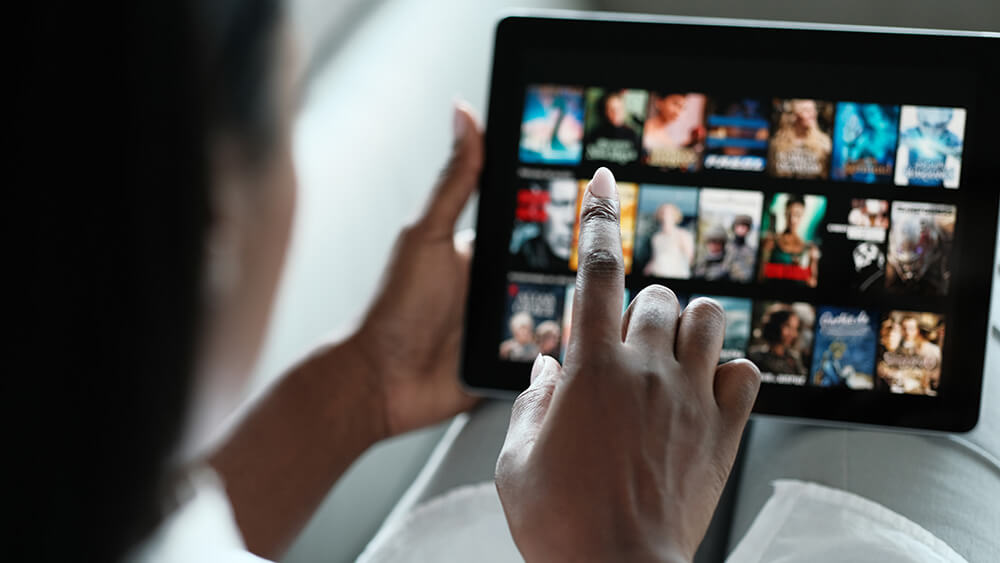
Netflix and other streaming services use reactive AI when they make recommendations based on a person’s viewing habits. Using this type of reactive AI at events could allow planners to track attendee sentiments in real time.
Events that don’t quickly find their way onto the AI adoption curve are destined to be out-innovated by the competition. That was the message experts shared with a full house of event professionals on May 28 during an AI-focused session hosted by mdg, a Freeman Company, and SISO, and held in conjunction with Lippman Connects’ Exhibition & Convention Executives Forum (ECEF) in Washington, D.C. From operations and design to marketing and personalization, AI solutions are having an impact on all areas of the industry — and the time to harness their potential is now.
While generative AI is where much of our cultural conversation has centered lately, reactive or ranking AI, which uses machine learning to recognize data patterns, already has transformed the event landscape — and much of our lives. We see it in action every time our purchase or search history on Amazon delivers a product it thinks we’ll like, or when Netflix offers recommendations based on what we’ve watched.
Using Reactive AI to Build Better Event Experiences
In the event world, reactive AI makes content easier to consume, speeds information delivery, and generates better ROI for exhibitors and sponsors. Consider how these AI-powered event solutions can improve your offerings:
- Chatbots: Provide personalized assistance 24/7 before, during, and after the show. Answer common questions, offer recommendations, and drive engagement.
- Elevated matchmaking: Facilitate meaningful networking by generating relevant connections with exhibitors and potential partners that align with attendee profiles and goals.
- Virtual/learning management systems (LMS): Provide more personalized, engaging, and effective learning experiences while automating various tasks and processes.
- Real-time translation: Translate your website, session materials, and instructor-led sessions and demos into other languages to broaden your event’s reach and appeal. Providers of AI-powered real-time translation platforms specifically for events like Interprefy and Wordly can instantly interpret live speech — providing audio, subtitles, captions, and transcripts in an attendee’s preferred language.
- Behavior mapping: Know more than ever before about what’s happening on the show floor. Check attendee sentiment using facial expression analysis; analyze foot traffic patterns to pinpoint hotspots and underutilized spaces; and track attention via gaze patterns, dwell time, and body language that reveals the content that resonates or causes confusion.
Harnessing the Potential of Generative AI
Generative AI is helping event professionals do everything from draft session descriptions to inspire full-scale design concepts. Here are just some of the ways AI platforms like ChatGPT, SPARK, Gemini, and Perplexity — which provide cited sources — can make routine work more efficient, streamline complex tasks, and do more with fewer staff:
- Develop conference session topics
- Brainstorm article topics
- Review contracts
- Write emails
- Organize meeting notes
- Repurpose content
- Create floor plans
- Brief specialist teams
As impressive as AI’s capabilities are, experts acknowledge the data, privacy, and ethical considerations inherent in the current technology, as well as algorithmic biases and potential to lose the “human touch.”
Unfortunately, AI doesn’t always get it right. Humans are still critical to engineer prompts and identify when the output is inaccurate or falls short — including tone and terminology that doesn’t align with the industry, audience, or message.
Priming the Prompt
How can we get better responses? “Just start talking to it,” Michael Weiss, co-founder of AI-focused event Ai4, said during the event. This may start with something like, “Pretend you’re an organizer of an AI conference …”
The key is constructing your prompt with specificity to influence the AI’s behavior. Instead of asking it to “Create a theme for a retail buyer workshop,” you could say, “Generate theme ideas for a workshop to help retail buyers understand the latest industry and consumer trends, how to take intelligent risks, ethical sourcing, and advanced negotiation skills.”
Anticipating Change
With AI rapidly gaining trust over search engines, attendees will soon make registration decisions by asking AI. If ChatGPT and other platforms become the go-to, surely changes to SEO will follow.
Will AI start to push prospective attendees and exhibitors toward more specialized, niche events versus larger shows? Vice versa? At the rate things are moving, we won’t have to wait long before we have answers. In the meantime, we should all be asking how AI can help us be more creative, efficient, and productive — and staying ready to pivot.
Vanessa Page is a copy director at mdg, A Freeman Company, a full-service marketing and public relations firm specializing in B2B events.
